The binary data in your example is not valid for a PNG file, so I created my own.
let FileBinaryString = "\x89PNG\x0d\x0a\x1a\x0a\x00\x00\x00\x0dIHDR\x00\x00\x00\x9f\x00\x00\x00!\x08\x02\x00\x00\x00H\xb9\xee\xb2\x00\x00\x00\x01sRGB\x00\xae\xce\x1c\xe9\x00\x00\x00\x04gAMA\x00\x00\xb1\x8f\x0b\xfca\x05\x00\x00\x00\x09pHYs\x00\x00\x0e\xc3\x00\x00\x0e\xc3\x01\xc7o\xa8d\x00\x00\x02\xf9IDAThC\xed\x98kv\xab0\x0c\x84\xb3.\x16\xc4zX\x0d\x9ba1\xb9~HF\xb6GJt\x1bJ\xea\xe3\xefO\x8bmF#\x0d\xe9)y<\'\xe32\xd3\x1d\x99\x99\xee\xc8\xcctGf\xa6;23\xdd\x91\xf9\x92t\x8fmy\x04\x96\xed\xa0\x85\x08\\\x1c\x18g\xbf\xfb\x1aO?\xd6\x9d\xae\x013\xdd\xef\xe1\xbet_U\xa6}\xb3\x96\xc1o\xa5\xcb65\xcdW\xfbWx*8\xb5g\xba\x1d\xb6O\xdeU\x8b\xfe\xb0M\x1bg\xbf3\xdd\x1e\xd3(\x0d,\x82\xab\xbe1\xd1\xff\xc7\xd9\xefL\x17\xc0\x09\x02\xa7\"\\\xdc\x09\x1d\xf8\xb0#f\xa6\xfb\x01\xd4\x88r\xbde]\xb5\xb1]\x1b\xae\xb7\xdf/I\xf7\xd8\xb7u\xc9\xdb\x91eY\xb7\xbd\x91\x81\xf2V\xcdF3\x88.\xeb~\xb8\xc6\xd2\xeaR\xb9 \xa3\xf4\xf2s?\xa5D\xbca\xe5\xe3,h\xe8\'\xf9t8\x90\xa4\xbf\"]^\x8f\x84\x8e\xc5E\xa5\x04\xe5\xb5\x9a\x87\xe8\xb4!\xf4M\x87,p\xbcy5M\x1e\x16\xd6\xec8\xfc\x90\xc4\xba\xe5\x9f\x0c\x1d\xd2\x0a\x9c\xcf\x81\x84\x87iu|m\xba4\xc6\xfa\xb6\xf0\xd4\xe6Uq\x16\xca\xe3\x9a|w\x9c\\\xd9\x08\xcfv\xaeowK@\xb3Y7\x17C\x95\xb1\x1b\x9f\x1f.\x1c)\xc7\x0f\xfe\x88\xdb\xfd\x9e\xf2\xd5\x07\xd9\xec\xd7\x99\xeeK@/\xdd<\x8a\xe3\xf30<\x8a\x16\xd9\x07\x105\xb6Z\xf8\xa8p+\xc3-\x06\xa5T\xe79\xe1\xf3\xc3K8\x13\xda\xad\xa4T\xfd\"\x85\x94\x98\x0b\xd3Ef\x99vT\xf0,Xd\x1b\xb8%\x90\x89B\xa7C\x0b\xe5\xba\xcb\xd2\x0e\xf7M?\xa0#\x01\xd8\xb5\xf4\xb1\xa3\x8a\x0b\xff2S\xf5pS\x0f\xed\x94\xd3P\x1e,v\xf3\xaa\xb0f\xd1\xd0h\xd3e\xef\x9eW\xfa\x03\x09\xa7\x9f\xa6j\x03\xd8\xb5\xf4\x1b\x87\x88\xdfHWe\xd9\xcc\xb6\xf5n\x95\x8e\x80\x09\x95zn\xf9\xaa\xba\xaf*E\xca\x9d\xb0\xd3\x0fl\xb3\xa0\xf7\x0bo\xb0k\'\xaeOW\xbdE\x02\xe5\x9d\xddB\x13:R*\xff\xaeW\x87\xf6\"N?\xaaN\x02\xecZ\xfa\xb4wS\xba`I\x05\xca\x83E[\xd3\x9eu\xcb9\x9d\xac\xda\xde&\xca\xe7\xa3@\xd7\xe9\x07t$\x00\xbb\x96\xfe\xbd\xe9\x9a\xd6\x1a\xa0<Z\xa4\x96\x90\x11.\xa7zl\xe1\xf1\xd0\xdbgg\xb3\xd4\xdf\xb4p\xbd~`\x9b\x05\xab\xdf\xce\\y\x09\xbe+]\xd9\xfb\xf9*\x988\xe2W5\xf2\xfd\x10\xc9[\x8bi]\xbe_r\xb3\xaaC\x00\xdbK\x80)U\xfb\x8a\xb0\xcb\x0f\xec\xa8`\xf7[\xbd\xefr\xcd\xc0}\xe9\x8aG,R\xfd\xbf\\\x89Y\x8du5+\xcd\x8a0\x01:\xf3\x16er\x01\xd8\x99\x88W\xed\xdc\xe3\xc7\x9e\xa2\xb2+]\x9e\x04\xe9\xfc\'\xe5\xcet\x03\xe1s\xda\x7f\x07\x1b\x9es\xa9\x04\xe5\x8d\x9a\xe9\xb3/\x1f\x14\xc7\xd7\xcc\x82spJc%\xde\xf3\xdf{\xc8\x9b~\xec)\xea\xbb\xf5\xb7S\xfc=}6\xf7\x89t\'\x7f\x91\x99\xee\xc8\xcctGf\xa6;23\xdd\x91\x99\xe9\x8e\xccLw\\\x9e\xcf\x7f0n\x83\xd5\xac\xd1\xd8\xd5\x00\x00\x00\x00IEND\xaeB`\x82";
//needed to call charCodeAt so e.g. '3' in FileBinaryString[150] is converted to 51 (ASCII value) instead of 3
let my_uint8_array = Uint8Array.from(FileBinaryString, c => c.charCodeAt(0));
//note that this uses Uint8Array.from; Array.from won't give a correct file in the end.
let blob = new Blob([my_uint8_array], { type: 'image/png' });
console.log(blob);
//the [] above is necessary, otherwise it produces a wrong Blob with a wrong size (2182)
// for the above string, the correct Blob has a size of 868
let myUrl = window.URL.createObjectURL(blob)
//the part below is just so that you can copy the code to the console and see that it results in a valid PNG file
const link = document.createElement("a");
link.href = myUrl;
link.setAttribute("download", "hello_world.png");
document.body.appendChild(link);
link.click();
link.remove();
And here is a way to get the string from an actual hello_world.png file, using node JS:
let fs = require('fs');
let buffer = fs.readFileSync("./hello_world.png");
let string = Array.from(buffer, num => {
//most of printable characters in ASCII don't need to be escaped
//0x7f should use hex escape, otherwise your command line output may miss that character.
if (num >= 0x20 && num < 0x7f) {
let chr = String.fromCharCode(num);
if (chr === '\\' || chr === '"' || chr === "'") return '\\' + chr;
else return chr;
}
let hexString = num.toString(16);
if (hexString.length < 2) {
hexString = "0" + hexString;
}
return '\\x' + hexString
}).join('');
console.log('"' + string + '"')
Edit: for processing data string saved as hex string
var FileHex = "89504e470d0a1a0a0000000d494844520000009f00000021080200000048b9eeb2000000017352474200aece1ce90000000467414d410000b18f0bfc6105000000097048597300000ec300000ec301c76fa864000002f9494441546843ed986b76ab300c84b32e16c47a580d9b6131b97e4846b6474a741b4aeae3ef4f8b6d46230de929793c27e332d31d9999eec8cc744766a63b3233dd91f992748f6d790496eda085085c1c1867bffb1a4f3fd69dae0133ddefe1be745f55a67db396c16fa5cb3635cd57fb57782a38b567ba1db64fde558bfeb04d1b67bf33dd1ed3280d2c82abbe31d1ffc7d9ef4c17c00902a7225cdc091df8b02366a6fb01d48872bd655db5b15d1baeb7df2f49f7d8b775c9db916559b7bd9181f256cd4633882eeb7eb8c6d2ea52b920a3f4f2733fa544bc61e5e32c68e827f9743890a4bf225d5e8f848ec545a504e5b59a87e8b421f44d872c70bc79354d1e16d6ec38fc90c4bae59f0c1dd20a9ccf81848769757c6dba34c6fab6f0d4e6557116cae39a7c779c5cd908cf76ae6f774b40b35937174395b11b9f1f2e1c29c70ffe88dbfd9ef2d507d9ecd799ee4b402fdd3c8ae3f3303c8a16d9071035b65af8a8702bc32d06a554e739e1f3c34b3813daada454fd228594980bd34566997654f02c58641bb825908942a7430be5bacbd20ef74d3fa02301d8b5f4b1a38a0bff3253f570530fed94d3501e2c76f3aab066d1d068d365ef9e57fa0309a79fa66a03d8b5f41b8788df485765d9ccb6f56e958e8009957a6ef9aabaaf2a45ca9db0d30f6cb3a0f70b6fb06b27ae4f57bd4502e59ddd42133a522affae5787f6224e3faa4e02ec5afab47753ba604905ca83455bd39e75cb399dacdade26cae7a340d7e907742400bb96febde99ad61aa03c5aa49690112ea77a6ce1f1d0db6767b3d4dfb470bd7e609b05abdfce5c7909be2b5dd9fbf92a9838e25735f2fd10c95b8b695dbe5f72b3aa4300db4b802955fb8ab0cb0feca860f75bbdef72cdc07de98a472c52fdbf5c89598d75352bcd8a30013af316657201d8998857eddce3c79ea2b22b5d9e04e9fc27e5ce7403e173da7f071b9e73a904e58d9ae9b32f1f14c7d7cc8273704a6325def3df7bc89b7eec29eabbf5b753fc3d7d36f78974277f9199eec8cc744766a63b3233dd9199e98ecc4c775c9ecf7f306e83d5acd1d8d50000000049454e44ae426082";
var binaryString = '';
for(let i = 0 ; i < FileHex.length ; i += 2 ) {
let hex = FileHex[i] + FileHex[i + 1];
let charCode = parseInt(hex, 16);
binaryString += String.fromCharCode(charCode);
}
let my_uint8_array = Uint8Array.from(binaryString, c => c.charCodeAt(0));
let blob = new Blob([my_uint8_array], { type: 'image/png' });
console.log(blob);
let myUrl = window.URL.createObjectURL(blob)
const link = document.createElement("a");
link.href = myUrl;
link.setAttribute("download", "hello_world.png");
document.body.appendChild(link);
link.click();
link.remove();
(n.b. just copy the above to a browser console to test the download.)
EDIT 2:
More experimentation with node JS led to this:
let fs = require('fs');
let buffer = fs.readFileSync("./hello_world.png");
let specialMap = new Map([
//[0x08, '\\b'],
//[0x0c, '\\f'],
[0x0a, '\\n'],
[0x0d, '\\r'],
// [0x09, '\\t'],
//[0x11, '\\v'],
// [0x00, '\\x00'],
])
let string = Array.from(buffer, num => {
if (specialMap.has(num)) {
return specialMap.get(num);
}
let chr = String.fromCharCode(num);
if (chr === '\\' || chr === '"') return '\\' + chr;
else return chr;
}).join('');
const FileBinaryString = '"' + string + '"'
console.log(FileBinaryString.length) //1013, original: 868
let after = `
let my_uint8_array = Uint8Array.from(FileBinaryString, c => c.charCodeAt(0));
let blob = new Blob([my_uint8_array], { type: 'image/png' });
let myUrl = window.URL.createObjectURL(blob)
const link = document.createElement("a");
link.href = myUrl;
link.setAttribute("download", "hello_world.png");
document.body.appendChild(link);
link.click();
link.remove();`;
fs.writeFileSync("./hello_world2.js", "let FileBinaryString = " + FileBinaryString + ';' + after)
and HTML file:
<!DOCTYPE html>
<html lang="en">
<head>
<meta charset="UTF-8">
<meta http-equiv="X-UA-Compatible" content="IE=edge">
<meta name="viewport" content="width=device-width, initial-scale=1.0">
<title>Document</title>
</head>
<body>
<script defer src="./hello_world2.js"></script>
</body>
</html>
After running the nodeJS script of Edit 2, it downloads the hello_world png just fine in the Chrome. But I can't copy it here since there are characters like "\x00".


